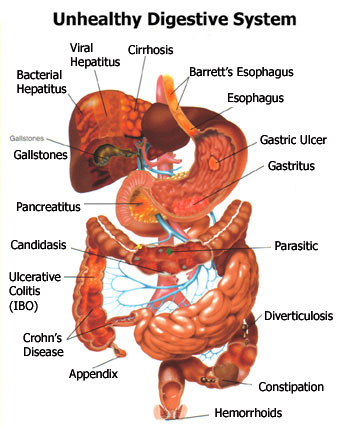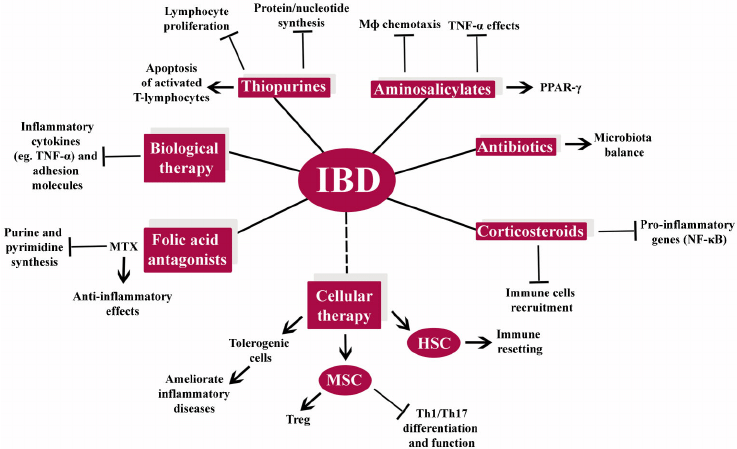
ABSTRACT:
In this article, we will discuss about the various disorders of human digestive system. The human digestive system plays a vital role in breaking down food, absorbing nutrients, and eliminating waste. However, various diseases can disrupt this complex process, leading to discomfort, pain, and potential long-term health complications. We will describe fascinating symptoms, causes and effects of disorders of human digestive system. We will also provide related references to understand the concept deeply.
INTRODUCTION OF DISORDERS OF HUMAN DIGESTIVE SYSTEM:
The human digestive system is a complex network of organs responsible for the breakdown, absorption, and elimination of food. However, various disorders can disrupt this intricate process, leading to discomfort, pain, and potential long-term health complications. In this article, we will explore some common disorders of the human digestive system, shedding light on their causes, symptoms, and available treatments.
DISORDERS OF HUMAN DIGESTIVE SYSTEM:
1. GASTROESOPHAGEAL REFLUX DISEASE:
GERD occurs when stomach acid flows back into the esophagus, causing irritation and inflammation. Common symptoms include heartburn, regurgitation, and difficulty swallowing. Lifestyle modifications, such as dietary changes and weight management, along with medications, can help manage GERD effectively. One study by El-Serag et al. (2014) found that the prevalence of GERD is increasing worldwide, highlighting the importance of understanding and managing this disorder.

2. PEPTIC ULCER DISEASE:
Peptic ulcers are open sores that develop on the lining of the stomach or the upper part of the small intestine. Common causes include infection with Helicobacter pylori bacteria and long-term use of nonsteroidal anti-inflammatory drugs (NSAIDs). Symptoms may include abdominal pain, bloating, nausea, and vomiting. Treatment involves antibiotics to eradicate H. pylori, acid-suppressing medications, and lifestyle modifications.
Lanas and Chan (2017) emphasize the importance of identifying and treating H. pylori infection in the management of peptic ulcer disease.

3. INFLAMMATORY BOWEL DISEASE:
IBD refers to chronic inflammation of the digestive tract, including Crohn’s disease and ulcerative colitis. Symptoms may include abdominal pain, diarrhea, rectal bleeding, weight loss, and fatigue. The exact cause of IBD is unknown, but it is believed to involve an abnormal immune response. Treatment aims to reduce inflammation and manage symptoms through medication, dietary changes, and, in severe cases, surgery. Torres et al. (2017) provide a comprehensive overview of Crohn’s disease, highlighting the importance of personalized treatment approaches based on disease location and severity.

4. IRRITABLE BOWEL SYNDROME:
IBS is a common functional disorder characterized by abdominal pain, bloating, and changes in bowel habits without any structural abnormalities. The exact cause of IBS remains unclear, but factors such as diet, stress, and gut microbiota are believed to play a role. Management involves dietary modifications, stress reduction techniques, and medications to alleviate symptoms. Ford et al. (2014) provide a comprehensive monograph on the management of irritable bowel syndrome and chronic idiopathic constipation, emphasizing the importance of a multidimensional approach to treatment.

CONCLUSION-DISORDERS OF HUMAN DIGESTIVE SYSTEM:
The human digestive system is susceptible to various diseases that can significantly impact an individual’s quality of life. Understanding the causes, symptoms, and available treatments for these diseases is crucial for early detection and effective management. By seeking medical advice and adopting appropriate lifestyle changes, individuals can minimize the impact of digestive system diseases and maintain optimal digestive health.
REFERENCES:
El-Serag HB, Sweet S, Winchester CC, Dent J. Update on the epidemiology of gastro-oesophageal reflux disease: a systematic review. Gut. 2014;63(6):871-880. doi:10.1136/gutjnl-2012-304269 https://pubmed.ncbi.nlm.nih.gov/23853213/
Lanas A, Chan FKL. Peptic ulcer disease. Lancet. 2017;390(10094):613-624. doi:10.1016/S0140-6736(16)32404-7 https://pubmed.ncbi.nlm.nih.gov/28242110/
Torres J, Mehandru S, Colombel JF, Peyrin-Biroulet L. Crohn’s disease. Lancet. 2017;389(10080):1741-1755. doi:10.1016/S0140-6736(16)31711-1 https://pubmed.ncbi.nlm.nih.gov/27914655/
Ford AC, Moayyedi P, Lacy BE, et al. American College of Gastroenterology monograph on the management of irritable bowel syndrome and chronic idiopathic constipation. Am J Gastroenterol. 2014;109 Suppl 1:S2-S26. doi:10.1038/ajg.2014.187 https://pubmed.ncbi.nlm.nih.gov/25091148/


